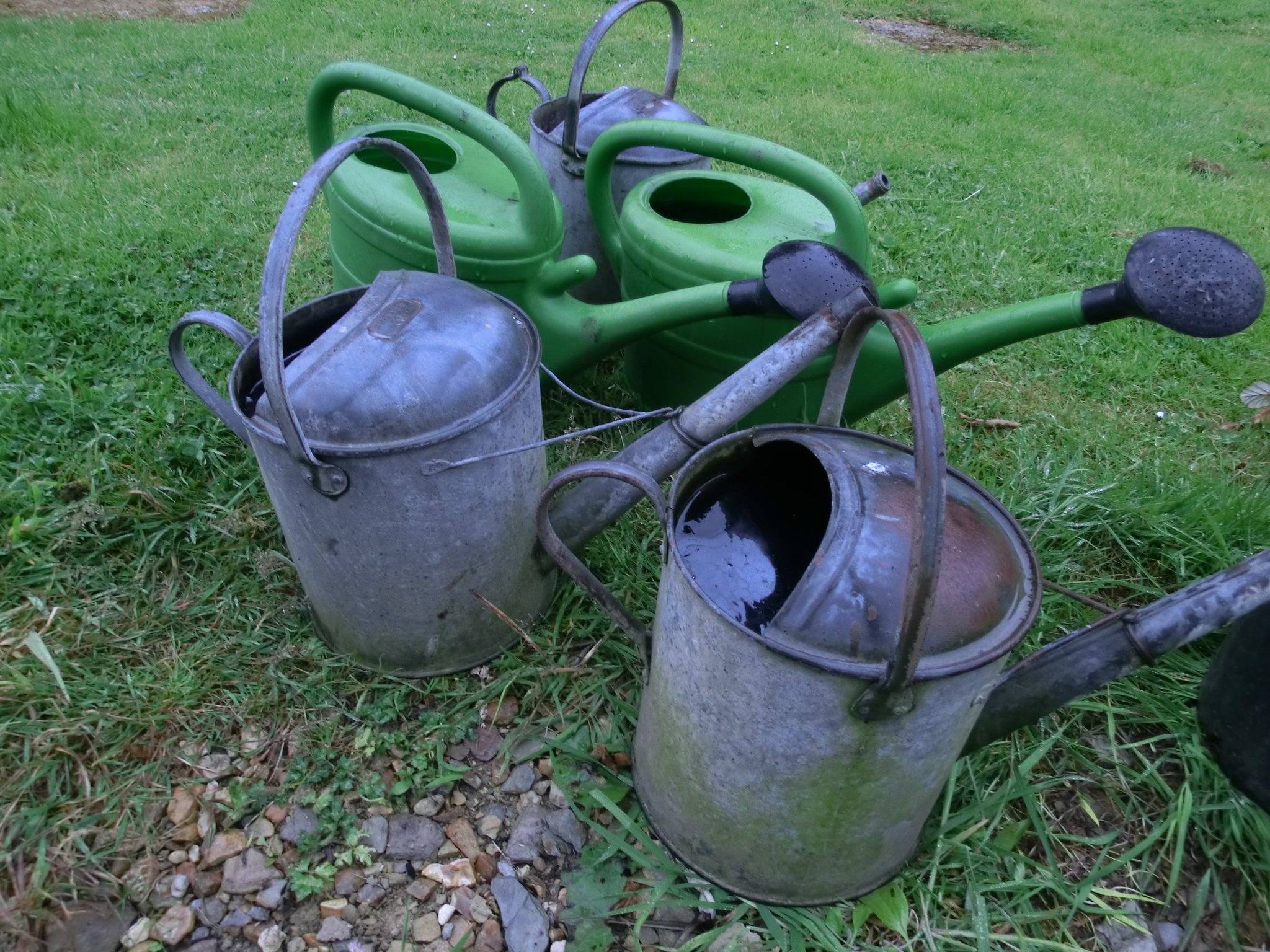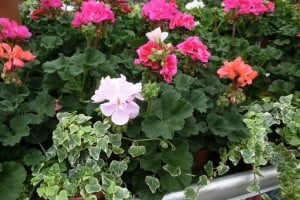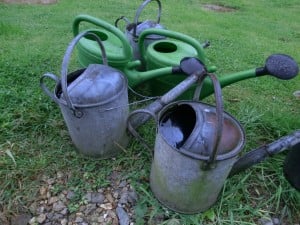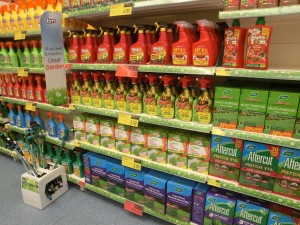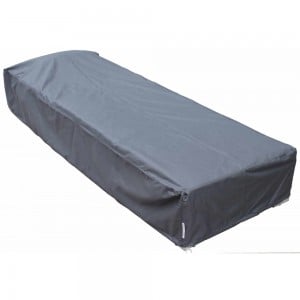Glorious hanging baskets - it is summer!
It is summer - for now! A long weekend in the Cotswolds proved it - everywhere was awash with flowers spilling out from hanging baskets, pots and garden borders.
Hanging baskets - ingredients for success
- Good planting early in the season (and a mix of plants that grow up and hang down to create a ball shape)
- Regular water and food
- A good dose of love and pride!
No need to do anything here then, I did all that and it is going to rain…
Long range weather forecasts suggest changeable weather over the next few weeks (no change there then!). Dry and sunny spells between bands of rain and showery spells are ideal for gardens, if not for holiday makers. But we can't rely on rain for hanging baskets and pots, places where the plants have a limited supply of soil to draw on. The key job in the garden now is to get on top of watering and feeding so that plants look great all through the long, hot days of summer.
How much water?
Enough to make the soil moist, but not wet.
Plants that like dry soil (remember our blog about the wonderful pelargonium?) need less water but they need some so don’t let their soil turn to concrete because they do need some water.
Make the most of water
- Water in the evening and early morning so that the sun does not burn plants or make the water evaporate quickly. Haning baskets in the full blaze of the sun may need to be watered twice a day - don't wait until they look limp.
- ‘Saucers’ under pots hold water that may run straight through a hot and dry pot and enable the plant to take up water slowly.
- It is best to water from underneath a pot - fill the saucer, often!
- When watering a hanging basket, a bucket underneath catches the drips and overflow.
- Target the soil in a hanging basket – you may need a step ladder. This is important for hot dry plants which don’t like water on their leaves.
- Water once, and go back and water again to give the soil a chance to absorb the water.
Save and reuse water
- Store water – it is never too late to fit a rain water butt
- Recycle water - from tumble driers and dehumidifiers, paddling pools, the water in which you prepare vegetables, and during droughts keen gardeners will often empty their bath tubs with a bucket….
Help: we are going away - what do we do?
- Recruit a neighbour: "You water my plants and I will water yours". Be sure to leave full watering cans and tell them what to do.
- Install a watering system.
- DIY: sit pots on a towel that is soaking water up from a bucket or bowl. Follow different ideas on YouTube, all you need is a plastic bottle and thick string or strips of fabric.
- Purpose made systems include automatic irrigation systems available from DIY stores and garden centres.
- Next year (!) plan ahead and insert gel watering mats or compounds in your hanging baskets pots to help the soil hold moisture for longer.
Feed hard working plants
Hanging baskets and pots that sparkle with flowers are well fed. Many will have enjoyed a fertiliser mixed into their soil, and now it is running low. Follow the instructions to add a liquid fertiliser that encourages flowers when you water.
Feed plants to flower next year
Camellia, rhododendrons, azaleas and others that gave you a great show earlier in the year need food if they are to do it again next year. Acid loving plants (like those I've just listed) need a special fertilizer. Look in garden centres for the one that suits your plants.
Next year ... plant for the weather you live in
It is so easy to buy plants that look great in someone else’s garden, and find they don’t like yours. And it takes time to find out which plants suit the place where you live. Use each season to find out what grows well in your garden, and follow the lead of those plants. If you and your neighbours are ablaze with delphiniums, penstemon, lavender and poppies the chances are you have dry and sandy soils. With me those plants struggle in all but the driest part of my garden, while ajuga and rubus odorate (ornamental blackberry) are taking over the damper spaces. So next year I will plant more plants like those (and offer a bucket full of ajuga and rubus to friends and garden fetes – they are great weed control in cool, and woody areas!)
That's a great reason to sit in the sun and start planning.....
Sign up for our emails below, so we can send you blogs on gardening tips, as well as updates on our sales, so you don’t miss out on those garden furniture bargains!


